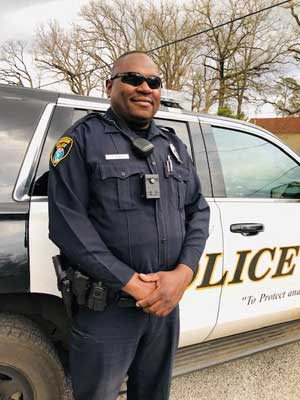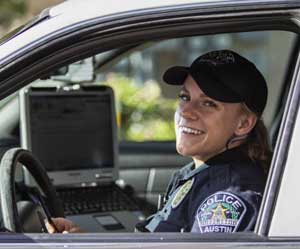
With many job announcements there will be a closing date. The closing date is the last day that anybody can apply for that job. Not only is the date important, but also the time is key because anybody who applies after the closing date and time will not be considered. If you are located on the west coast and are applying for a job on the east coast, it probably closes at midnight, which is 9 pm pacific time. Sometimes an announcement will say that the posting will be closed when a certain number of applicants have applied. Often, it’s a combination. It could have a specific closing date, and 200 applicants. If the 200 applications come in prior to the closing date, the job announcement will be closed. Also, for most job openings, they can be closed at anytime. If you do see a job that you want to apply for, don’t wait until close to the deadline to apply.
Duties and Responsibilities
Listed in the job announcement will be the duties and responsibilities. It will describe often in great detail everything involved with performing that job. It will list who can apply for the opening. There are a variety of different terms used with job announcements. There’s the term “internal” which means it’s only open to current employees of that particular agency. There’s also the term “lateral”, and a lateral means people either currently working in that job with another agency, or those that have recently worked in that job. A lateral job opening is not entry level. They require someone with experience. The term “status” is used with jobs in the federal system and means that the job is open to current and former federal employees.

For law enforcement jobs not requiring experience, terms that are often used include “trainee” and “recruit” as well as “Entry Level.” There is no standardization regarding these terms and they can all be used to mean different things. The term “police cadet program” usually refers to an entry level which is open to applicants in a specific age range.
It is beneficial to know the definition of what is a peace officer because there are a variety of law enforcement jobs and each one has their own requirements. The police requirements for becoming a sworn officer will be very different from becoming a crime analyst.
Qualifications and Requirements
The qualifications and requirements for the job will be listed in the job announcement. There are lots of types of law enforcement jobs with different types of law enforcement agencies, so it is important to read the announcement carefully. The requirements can include:
- Education – It could be only a high school diploma or GED, 60 college credits, or a bachelors’ degree. If certain college majors are preferred that will also be listed in the job announcements. Many departments prefer to have new recruits from a variety of educational backgrounds. Therefore, agencies are no longer focusing only on applicants with a criminal justice related degree. They are looking for applicants who have degrees in psychology, counseling, and a variety of different fields.
- Experience – There are many entry level law enforcement jobs out there which do not require any experience.
- Age – Every department will have a minimum age requirement. This requirement is set by the state. However, the individual agency can set a minimum age which is higher than that set by the state. Some departments have a maximum age as part of their police officer requirements. This usually is related to the age at which retirement is required. If a department mandates that employees retire at age 57, then to have 20 years of service and receive the full retirement benefits, someone must start no later than age 37. Thus the maximum hiring age is 37.
- Citizenship – For many law enforcement jobs it is required to be a US Citizen. However, some local departments do not require US Citizenship but require that applicants are lawfully allowed to work in the U.S. and some also require that applicants have applied for US Citizenship. If you’re not certain on a specific requirement, make sure to ask. Contact the recruiter from that agency or the human resources department.
- Certifications – There will be job announcements where one of the requirements is to be POST certified. In addition to being open to someone who is currently a peace officer with another department, this would be open to someone who went through a law enforcement academy on their own, graduated, and is now looking for a job with an agency. If an agency can hire someone who is already POST certified, it saves them the cost of putting a new recruit through the academy, and the agency knows that the applicant has already based a background investigation as that is a requirement of attending an academy.
Supplemental Questionnaire

The questionnaire may ask if an applicant has been convicted of a felony. It could also ask if an applicant has been convicted of domestic assault. These are being asked up front because they are automatic disqualifiers. Anybody who has a yes to these would be automatically disqualified from applying with that agency. There is a federal law that says anybody convicted of domestic assault, whether it is a felony or misdemeanor conviction, cannot possess a firearm. For most law enforcement positions, having a firearm is one of the major requirements. Therefore, you could not do the job if you’ve been convicted of domestic assault.
The agency may ask you a variety of other questions related to DWI offenses, and other driving violations. The risk for a police department of one of their officers or deputies being involved in a serious traffic accident is very high. Having an applicant who already has a demonstrated history of poor driving can post too big of a risk to the department and to the public.

When you are applying for a job, make a copy of the entire job announcement. The entire job announcement is going to be an important reference you will used to help you prepare for your police oral board questions. The job announcement will usually be taken down after the closing date. There are web browser tools and extensions that will take a screenshot of an entire page from top to bottom, not just what you see. These tools are available at no cost and are very helpful during the application process.
How to stay Organized and Prepared
Make a checklist of everything required for that job announcement, and keep track of what you have turned in. Failing to turn in a complete application packet, and on time, will usually remove an applicant from consideration. Agencies are very strict about this because turning in a completed application packet, one that is properly filled out, is the initial way an agency learns about an applicant. An application packet that is not complete, or has not been properly filled out, shows the hiring agency that this applicant cannot properly follow instructions.
Create a spreadsheet which has every job that you are applying for, and where you are in the application process. Proofread everything that you turn in, and when possible, have somebody else proofread it as well, including emails, cover letters, resumes, and applications.

When you apply for a law enforcement job opening, there rarely should be a fee to apply. There are some agencies that use centralized testing companies, and with those, there may be a fee. The testing fees are usually between $25 and $50. If there is a fee, make certain that this is legitimate. Verify with the hiring agency that the required testing has a fee.
The Hiring Process
The selection process from start to finish
- Application – Here’s an overview of all of the steps in the hiring process. You’re going to start off with your application, and there may be a personal assessment with the application where you’ll be asked questions to determine if you have any of the disqualifiers.
- Written Exam – The law enforcement entrance exam may be given only to those who’ve been determined as meeting the minimum qualifications for the opening or sometimes they’re given to everybody who applies.
- Oral Board Interview – The oral board interview may be given only to those who passed the written exam or sometimes they also are given to everybody who has applied.
- Physical Agility – The physical agility test may be given only to those who passed the written or possibly to everybody that has applied. Sometimes an agency will have a mass hiring, and they’ll do the written, the oral, and the physical agility all in the course of a couple of days.
- Psychological – The psychological is usually only given to those who are advancing through the process, meaning that they’ve passed the physical agility, the written, and the oral board interview. However, there are situations where there is a mass hiring and the psychological will be given to everybody who has applied.
- Polygraph – If an agency does a polygraph, it will usually just be given to those who passed everything else prior. Sometimes a polygraph is given in stages to those that are ranking on the selection list, and they’re being considered for employment. When being asked police polygraph questions, is it important to be very forthcoming.
- Chief’s Interview – The chief’s interview is usually only given to those in the final group being considered for employment. With some agencies, if there are 3 openings, then 10 applicants will go for their chief’s interview and the chief then will decide which 3 out of the 10 will be hired. For other agencies, the chief’s interview is a way go get the approval from the chief that an applicant should be hired for that agency.
- Background Investigation – The police background check is done only for those applicants are being considered for employment. If an agency is hiring 3 people, sometimes they will background 5 just in case someone fails their background.
- Conditional Offer of Employment – For the successful candidate, this will culminate with a conditional letter of employment being given to those who being offered a position.
When an applicant has been hired and is now working for that department, whether they have started training at the academy or are actually out in the field, their employment with that agency was based upon everything that was turned in by the applicant was accurate and complete. If anything comes up indicating otherwise, this could be grounds for termination.
The application process is a key step in getting a job with a law enforcement agency. Rather than being looked at as a formality in the hiring process, it is important to view the application as an opportunity to demonstrate to the hiring agency that instructions can be followed, and as a way to stand out positively from the pool of applicants also applying for the job.

 Joseph Libowsky,
Joseph Libowsky,